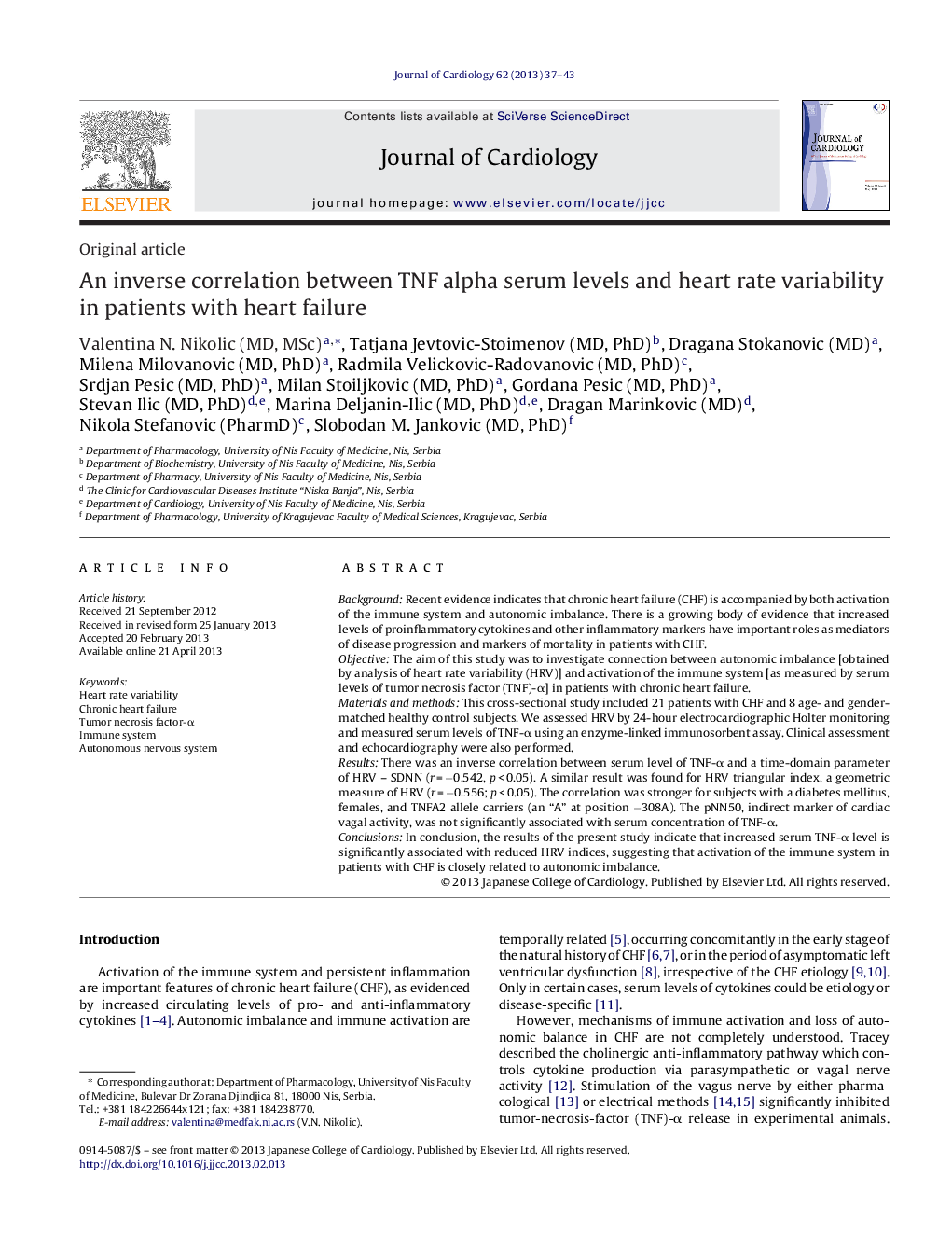| Article ID | Journal | Published Year | Pages | File Type |
|---|---|---|---|---|
| 2963418 | Journal of Cardiology | 2013 | 7 Pages |
BackgroundRecent evidence indicates that chronic heart failure (CHF) is accompanied by both activation of the immune system and autonomic imbalance. There is a growing body of evidence that increased levels of proinflammatory cytokines and other inflammatory markers have important roles as mediators of disease progression and markers of mortality in patients with CHF.ObjectiveThe aim of this study was to investigate connection between autonomic imbalance [obtained by analysis of heart rate variability (HRV)] and activation of the immune system [as measured by serum levels of tumor necrosis factor (TNF)-α] in patients with chronic heart failure.Materials and methodsThis cross-sectional study included 21 patients with CHF and 8 age- and gender-matched healthy control subjects. We assessed HRV by 24-hour electrocardiographic Holter monitoring and measured serum levels of TNF-α using an enzyme-linked immunosorbent assay. Clinical assessment and echocardiography were also performed.ResultsThere was an inverse correlation between serum level of TNF-α and a time-domain parameter of HRV – SDNN (r = −0.542, p < 0.05). A similar result was found for HRV triangular index, a geometric measure of HRV (r = −0.556; p < 0.05). The correlation was stronger for subjects with a diabetes mellitus, females, and TNFA2 allele carriers (an “A” at position −308A). The pNN50, indirect marker of cardiac vagal activity, was not significantly associated with serum concentration of TNF-α.ConclusionsIn conclusion, the results of the present study indicate that increased serum TNF-α level is significantly associated with reduced HRV indices, suggesting that activation of the immune system in patients with CHF is closely related to autonomic imbalance.
